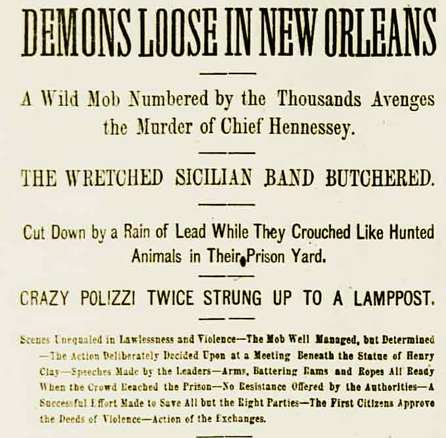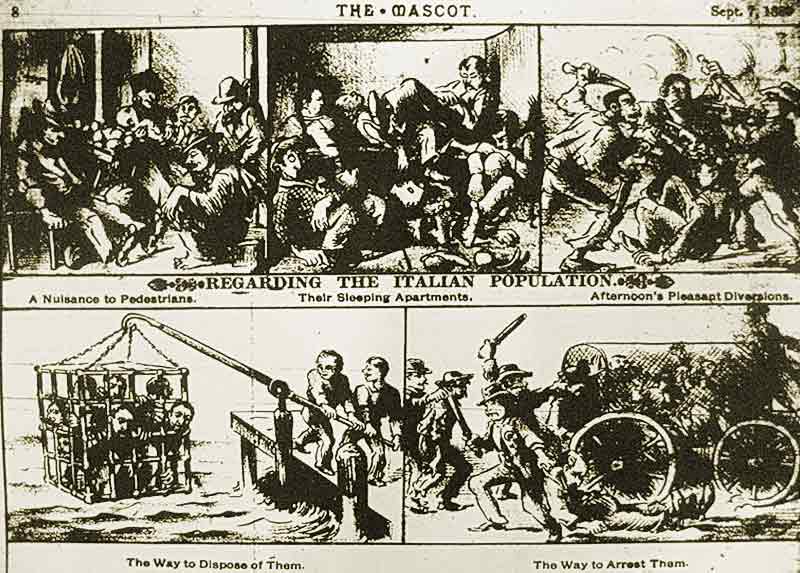|
From CNN, By Ed Falco (Editor's note: Ed Falco is the author of the novel, "The Family Corleone," a prequel to Mario Puzo's "The Godfather." Among his awards and honors are an NEA fiction fellowship and the Southern Review's Robert Penn Warren Prize. He is a professor of English at Virginia Tech, where he directs the MFA Program in Creative Writing.) In Murfreesboro, Tennessee, where there is opposition to the building of a mosque, protesters are reported to have gathered at the construction site shouting, "Islam is not a religion!" When I read this in my local paper, I thought about how the people of Murfreesboro's Islamic community must have felt at the sight of their neighbors rallying against them and their religion. America has a proud tradition as an immigrant nation, but it also has a long history of marginalizing those it marks as "other." America's other heritage includes suspicion, hostility, abuse and even death, leveled against ethnic groups as they arrived one after another in waves over the past 2½ centuries. I learned much about this as I researched "The Family Corleone," a novel I wrote based on a screenplay by Mario Puzo. The novel is about, among other things, Italian-Americans living in New York during the depression. There were a number of things that surprised me in my initial research. I knew something about our nation's early antipathy toward Catholics and Italians, but I had not fully appreciated the depth of that antagonism. For example, the largest mass lynching in U.S. history took place in New Orleans in 1891 — and it wasn't African-Americans who were lynched, as many of us might assume. It was Italian-Americans. After nine Italians were tried and found not guilty of murdering New Orleans Police Chief David Hennessy, a mob dragged them from the jail, along with two other Italians being held on unrelated charges, and lynched them all. The lynchings were followed by mass arrests of Italian immigrants throughout New Orleans, and waves of attacks against Italians nationwide. What was the reaction of our country's leaders to the lynchings? Teddy Roosevelt, not yet president, famously said they were "a rather good thing." The response in The New York Times was worse. A March 16, 1891, editorial referred to the victims of the lynchings as "... sneaking and cowardly Sicilians, the descendants of bandits and assassins." An editorial the next day argued that: "Lynch law was the only course open to the people of New Orleans. ..." (Read the entire article HERE...) Below is a political cartoon from “The Mascot” newspaper published on September 7, 1888 in New Orleans. Through out the 19th century many Americans were angry at the influx of immigrants coming over from Southern and Eastern Europe.
The Italian immigrants were discriminated against in both the north and south. Often working in northern sweatshops for little pay or on southern farms doing the hard work of former slaves. There were also discriminated against because of their skin color. Coming from Southern Europe most Italians had darker skin colors and we often treated no better the freed slaves, and frequent victims of lynching. The above cartoon is an example of the discrimination the Italians faced in America. The top part of the cartoon shows how Americas feel about the Italians, crowding the streets and apartments, and starting fights. This stereotype has often been encouraged, even today, as Italians being violent people and participating in organized crime. The bottom of the cartoon gives ways to get rid of the perceived problem of Italian immigrants, either “dispose” of them or arrest them. During this time the Italians faced a large amount of discrimination in New Orleans, especially by the Irish immigrants already living there. In 1890 the many people in New Orleans blamed the Italians for the murder of David Hennessey. Hundreds of Italians were arrested and even though they were eventually released, eleven Italians were lynched by a mob.
0 Comments
Your comment will be posted after it is approved.
Leave a Reply. |
Categories
All
Archive
June 2024
|




 RSS Feed
RSS Feed
